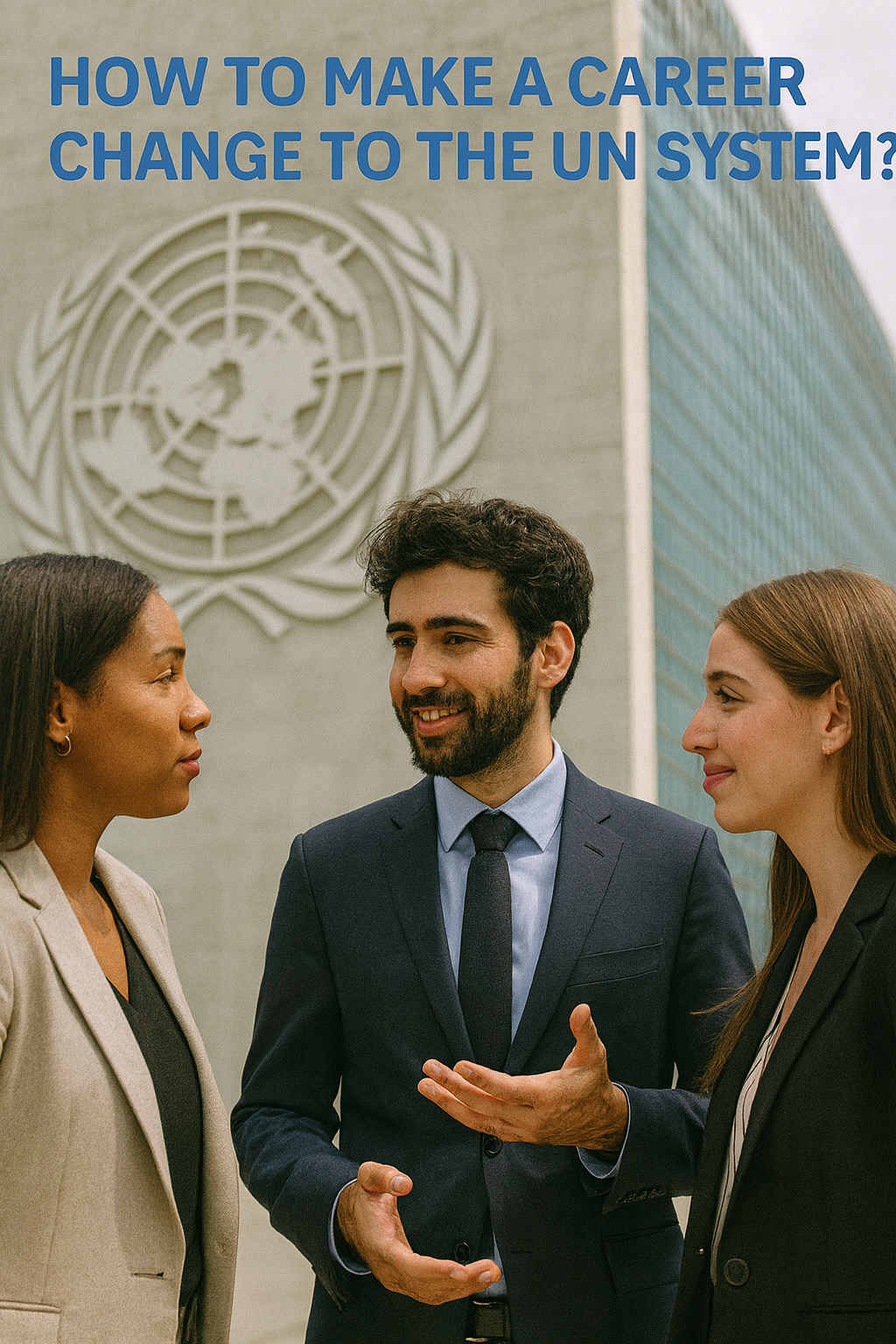How to make a career change to the UN system?
Three mid-career professionals networking in front of the United Nations headquarters in New York, discussing strategies to transition into UN careers, with the UN emblem clearly visible in the background.
Switching to a career in the United Nations can feel like aiming for the top of an international mountain—prestigious, challenging, and incredibly rewarding. For many mid-career professionals, the UN represents not just a job, but a chance to make a tangible global impact, influence policy, and contribute to humanitarian and development goals on an international stage. Yet, making this transition isn’t as simple as sending in a résumé. It’s a competitive process that requires strategic preparation, targeted networking, and a deep understanding of the UN’s unique hiring system.
If you’ve ever typed “how to change careers and work for the UN” into Google late at night, wondering whether your skills will translate into a UN role, you’re not alone. Every year, professionals from fields like government, non-profits, academia, and the private sector successfully pivot into the UN system—often without prior UN experience. The key lies in knowing how to position your expertise and unique skills, build relevant exposure, and navigate the recruitment process with confidence.
We’ve talked to UN experts and summarized what it takes to make that leap, so you can turn your career change into a global career reality.
1. Map your experience to UN core values and UN vacancy job needs
One of the biggest mistakes career changers make when applying to the UN is assuming their impressive CV will speak for itself. The reality is that the UN recruitment process is highly structured, and evaluators are trained to look for very specific indicators—especially alignment with UN core values and the exact competencies listed in the vacancy announcement.
2. Learn the UN application process
Applications go through Inspira, the UN’s e-recruitment platform. Understanding how to complete the Personal History Profile (PHP) correctly is essential.
3. Gain relevant international exposure
Even short-term assignments abroad, regional projects, or cross-border work with NGOs can help you demonstrate international competence.
4. Build your UN network
Attend events at UNHQ or local UN offices, join alumni groups from UN-related training programs, and connect with insiders e.g. via LinkedIn.
By following proven UN career advice, refining your job search strategy, and building targeted experience, you increase your chances to successfully transition into a role within the United Nations system.
Want to lean more and make sure your cover letter is tailored to UN standards?
💼 Need support drafting your UN application?
At United Career Coalition, our team of native English-speaking UN experts specializes in revising and fine-tuning your motivation letters, CVs, and other application documents. We tailor every detail to align with the specific role you are applying for—whether it's a JPO, internship, consultancy, or P-level post.
Our personalized writing support ensures your application is not only professionally formatted but also compelling, role-specific, and fully aligned with the UN’s tone, values, and expectations.
📅 Schedule a 45-minute video consultation with a UN expert today and get one step closer to the international career you’re striving for.
👉 Learn more at the United Career Colaition https://unitedcareercoalition.org/

